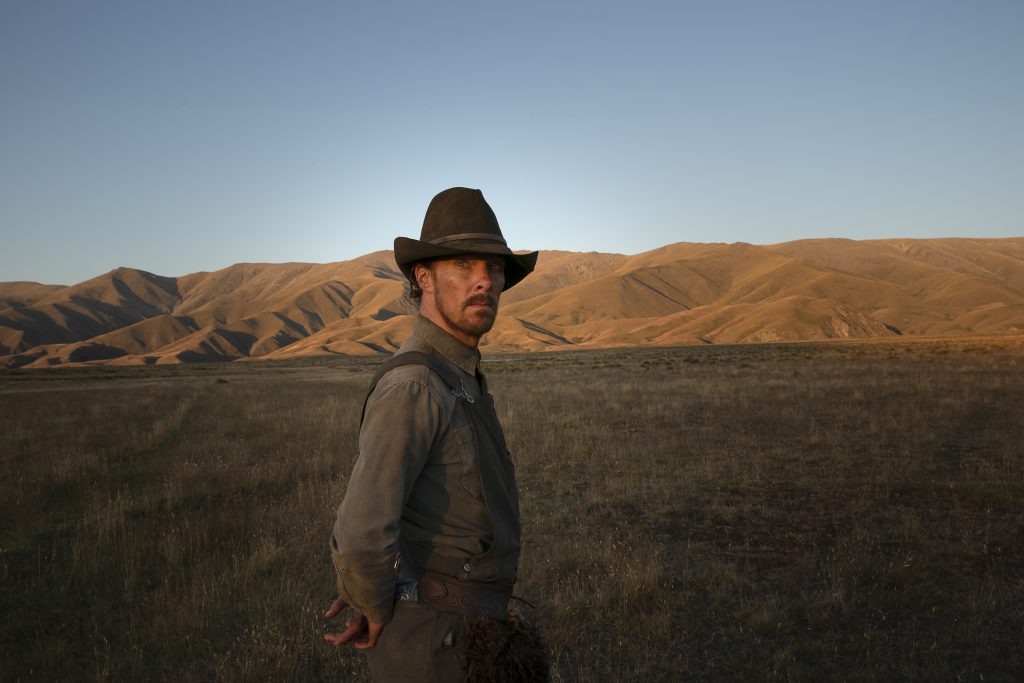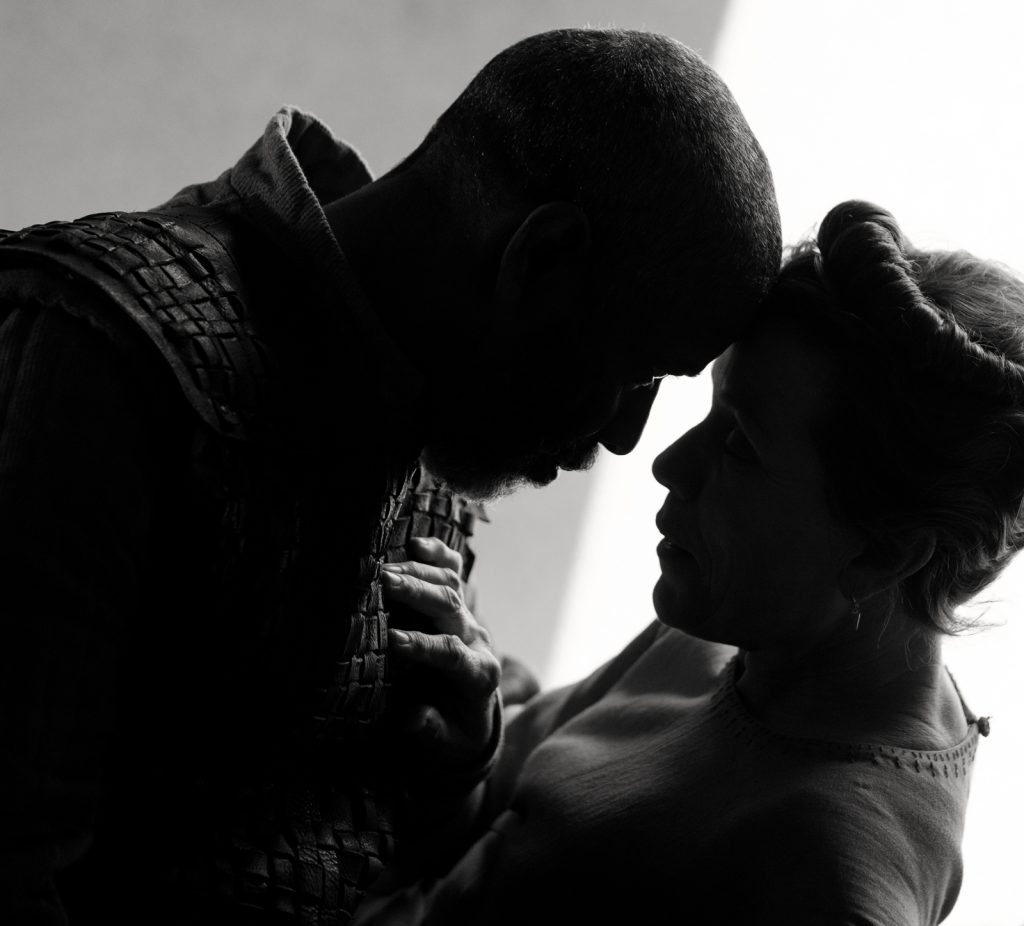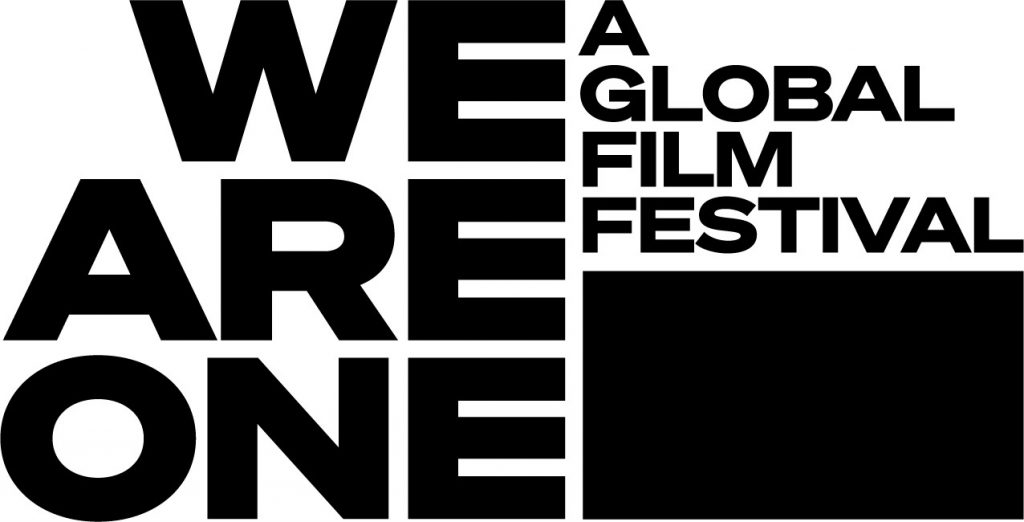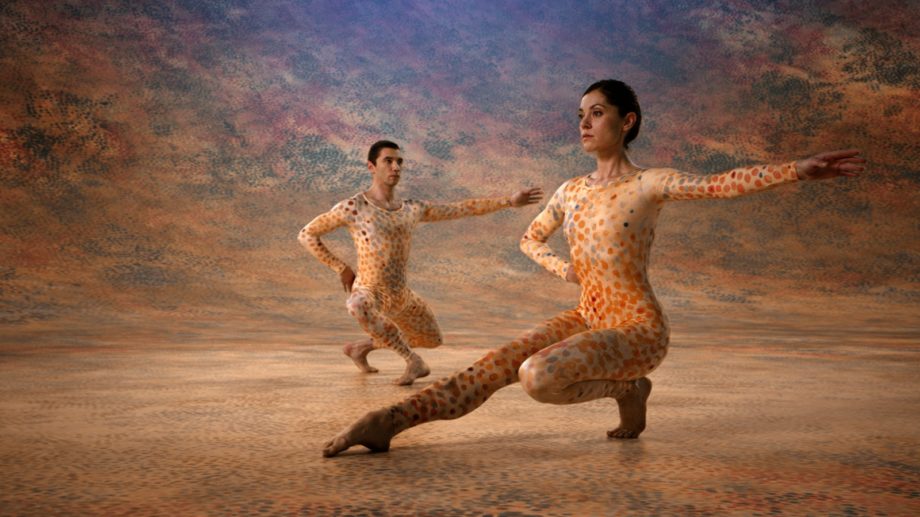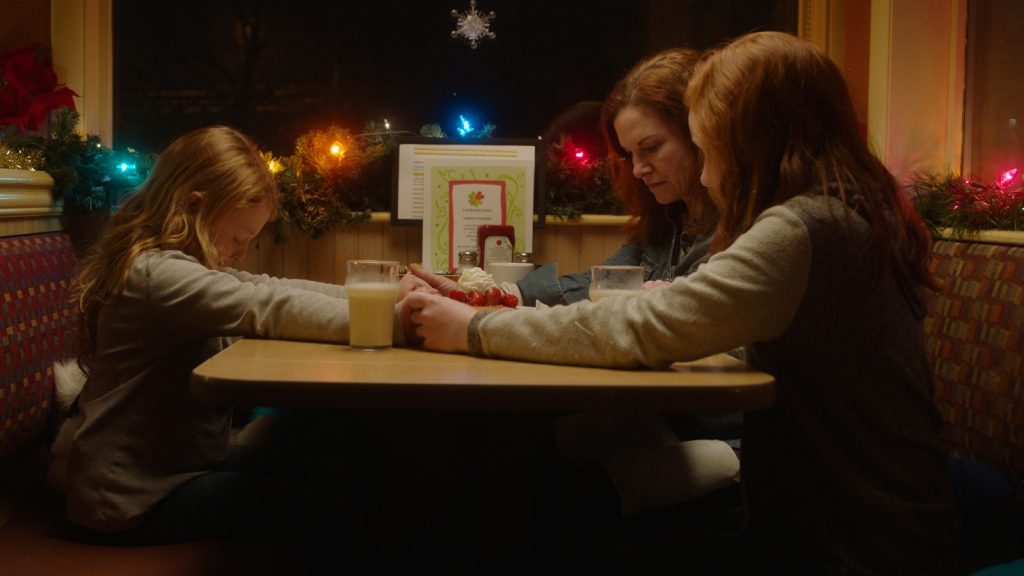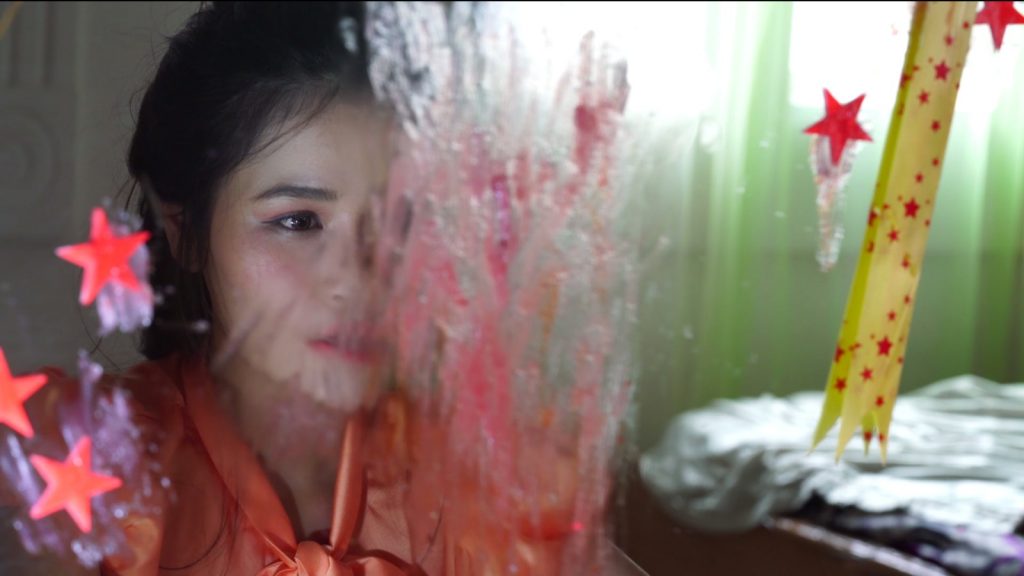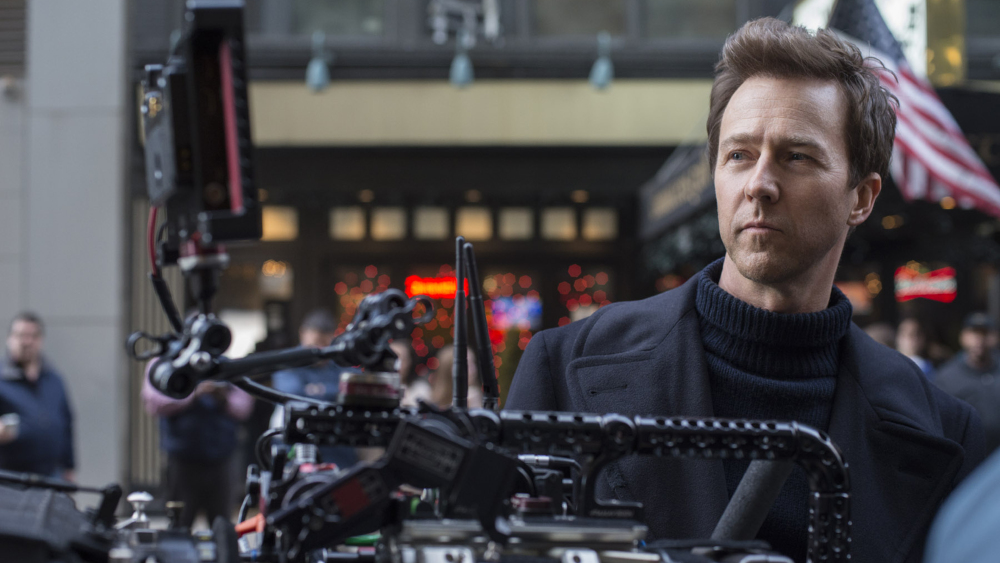August 19, 2021

The following is a press release from Film at Lincoln Center:
Film at Lincoln Center announces Spotlight for the 59th New York Film Festival (September 24 – October 10, 2021). The Spotlight section is NYFF’s showcase of the season’s most anticipated and significant films. Early ticket access to Spotlight selections and more are available with a NYFF59 Festival Pass, available through this Sunday, August 22 only.
“Our Spotlight section is a new part of our reshaped New York Film Festival, a place that this year encompasses a range of cinema, new and old,” said Eugene Hernandez, Director of the New York Film Festival. “Of the new work, we’re showcasing a selection of anticipated films (and talent) from recent festivals (Wes & company! Olivia! Timmy! Jane & Charlotte! Joaquin! and more), while also looking back at our roots, celebrating the history of NYFF and New York City’s film culture by shining a special light on Amos Vogel. We hope that our Spotlight section, in year two, will again engage, enlighten, and entertain!”
Among the highlights are Denis Villeneuve’s highly anticipated adaptation of Dune; Academy Award–nominated director Mamoru Hosoda’s Belle, a visually extraordinary tale about a shy teenager who becomes an online sensation as a pop star; Mike Mills’s C’mon C’mon, starring Joaquin Phoenix as a warmhearted radio journalist; Wes Anderson’s latest, The French Dispatch, showcasing his unmistakable cinematic style with a cast of familiar collaborators; directorial debuts from Charlotte Gainsbourg, profiling her legendary mother Jane Birkin in Jane By Charlotte, and Maggie Gyllenhaal, adapting Elena Ferrante’s novel The Lost Daughter, with a brilliant performance by Oscar-winner Olivia Colman; veteran Italian filmmaker Marco Bellocchio’s Marx Can Wait, a heart-wrenching examination of the legacy of his twin brother’s suicide, on the occasion of a family reunion in his hometown of Piacenza; and Red Rocket, Sean Baker’s newest depiction of contemporary America as a playground for hustlers and con men, set against the backdrop of the 2016 presidential election.
NYFF59 also pays tribute to the centenary of late film programmer and festival co-founder Amos Vogel—who offered the city “films you cannot see elsewhere,” and whose uncompromising dedication to the medium’s radical possibilities inspired NYC film culture as it exists today—with a special Spotlight sidebar. Vogel’s wide-ranging curatorial career spanned his many years running Cinema 16, America’s most influential film society; his foundational work at Lincoln Center; his time at Grove Press; and his classic study Film as a Subversive Art, which will soon be reissued by The Film Desk. FLC’s tribute focuses on the NYFF period, bookended by screenings devoted to his work before and after his involvement with the festival, including films from Glauber Rocha, John Huston, and trailblazers of the Czech New Wave; a program from NYFF5 sidebar The Social Cinema in America, featuring Lebert Bethune’s Malcolm X: Struggle for Freedom, Santiago Álvarez’s dispatch from postrevolutionary Cuba, Now, and David Neuman and Ed Pincus’s snapshot of Civil Rights-era Mississippi, Black Natchez; and works from the era’s burgeoning avant-garde scene, such as Tony Conrad’s The Flicker and a world premiere restoration of Robert Frerck’s Nebula II.
The NYFF59 Spotlight retrospective will be followed by tributes at repertory cinemas across New York City—Anthology Film Archives, Film Forum, Light Industry, Metrograph, MoMA, and the Museum of the Moving Image—in an unprecedented collaboration.
The Spotlight section is programmed by Eugene Hernandez and Dennis Lim. NYFF’s Amos Vogel centenary celebration is organized by Thomas Beard, Dennis Lim, and Tyler Wilson.
NYFF59 will feature in-person screenings, as well as select outdoor and virtual events. In response to distributor and filmmaker partners and in light of festivals returning and theaters reopening across the country, NYFF will not offer virtual screenings for this year’s edition.
Proof of vaccination will be required for all staff, audiences, and filmmakers at NYFF59 venues. Additionally, NYFF59 will adhere to a comprehensive series of health and safety policies in coordination with Lincoln Center for the Performing Arts and state and city medical experts, while adapting as necessary to the current health crisis. Visit filmlinc.org for more information.
Presented by Film at Lincoln Center, the New York Film Festival highlights the best in world cinema and takes place September 24 – October 10, 2021. An annual bellwether of the state of cinema that has shaped film culture since 1963, the festival continues an enduring tradition of introducing audiences to bold and remarkable works from celebrated filmmakers as well as fresh new talent.
Festival Passes are now on sale through this Sunday, August 22 only. NYFF59 tickets will go on sale to the general public on Tuesday, September 7 at noon ET, with early-access opportunities for FLC members and pass holders prior to this date. Learn more here. Support of the New York Film Festival benefits Film at Lincoln Center in its nonprofit mission to promote the art and craft of cinema.
FILMS & DESCRIPTIONS
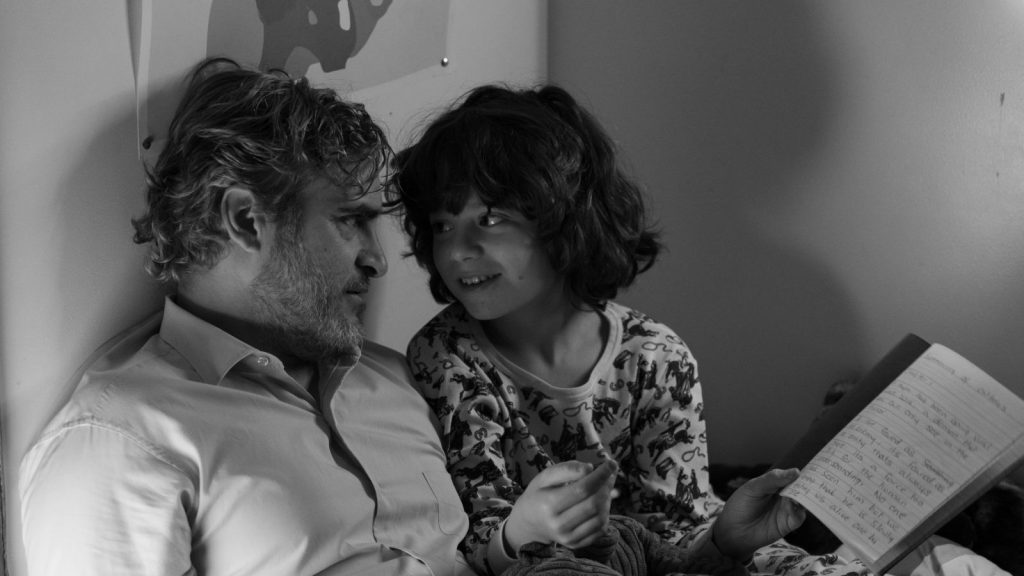
Belle
Mamoru Hosoda, 2021, Japan, 121m
Japanese with English subtitles
In his densely beautiful, eye-popping animated spectacle, Academy Award–nominated director Mamoru Hosoda (Mirai) tells the exhilarating story of a shy teenager who becomes an online sensation as a princess of pop. Still grieving over a childhood tragedy, Suzu has a difficult time singing in public or talking to her crush at school, yet when she takes on the persona of her glittering, pink-haired avatar, Belle, in the parallel virtual universe known as the “U,” her insecurities magically disappear. As her star begins to rise, Belle/Suzu finds herself drawn to another “U” fan favorite—a scary but soulful monster whose “real” identity, like Belle’s, becomes a source of fascination for legions. Both a knowing riff on the Beauty and the Beast fairy tale and a moving commentary on the duality of contemporary living, Belle is a thrilling journey into the matrix and a deeply human coming-of-age story, packed with unforgettable images and dazzlingly styled characters. A GKIDS release.
C’mon C’mon
Mike Mills, 2021, USA, 108m
After gracing audiences with Beginners and 20th Century Women (NYFF54), writer-director Mike Mills returns with another warm, insightful, and gratifyingly askew portrait of American family life. A soulful Joaquin Phoenix plays Johnny, a kindhearted radio journalist deep into a project in which he interviews children across the U.S. about our world’s uncertain future. His sister, Viv (a marvelously intuitive Gaby Hoffmann), asks him to watch her 9-year-old son, Jesse (Woody Norman, in one of the most affecting breakout child performances in years), while she tends to the child’s father, who’s suffering from mental health issues. After agreeing, Johnny finds himself connecting with his nephew in ways he hadn’t expected, ultimately taking Jesse with him on a journey from Los Angeles to New York to New Orleans. Anchored by three remarkable actors, C’mon C’mon is a gentle yet impeccably crafted drama about coming to terms with personal trauma and historical legacies. An A24 release.
Dune
Denis Villeneuve, 2021, USA, 155m
A mythic and emotionally charged hero’s journey, Dune tells the story of Paul Atreides, a brilliant and gifted young man born into a great destiny beyond his understanding, who must travel to the most dangerous planet in the universe to ensure the future of his family and his people. As malevolent forces explode into conflict over the planet’s exclusive supply of the most precious resource in existence—a commodity capable of unlocking humanity’s greatest potential—only those who can conquer their fear will survive. Timothée Chalamet, Rebecca Ferguson, Oscar Isaac, Josh Brolin, Stellan Skarsgård, Dave Bautista, Stephen McKinley Henderson, Zendaya, Chang Chen, Charlotte Rampling, Jason Momoa, and Javier Bardem lead the all-star ensemble in visionary filmmaker Denis Villeneuve’s adaptation of Frank Herbert’s seminal novel. A Warner Bros. Pictures release.
The French Dispatch
Wes Anderson, 2021, USA, 107m
English and French with English subtitles
North American Premiere
Wes Anderson’s unmistakable cinematic style proves delightfully suited to periodical format in this missive from the eponymous expatriate journal, published on behalf of the Liberty, Kansas Evening Sun from the picturesque French town of Ennui-sur-Blasé. Brought to press by a corps of idiosyncratic correspondents, the issue includes reports on a criminal artist and his prison guard muse, student revolutionaries, and a memorable dinner with a police commissioner and his personal chef. As brimming with finely tuned texture as a juicy issue of a certain New York–based magazine to which the film pays homage, The French Dispatch features precision work from a full masthead of collaborators (including Bill Murray, Timothée Chalamet, Tilda Swinton, Benicio del Toro, Frances McDormand, and Jeffrey Wright), each propagating inventive dedication to detail. Anderson’s deadpan whimsy is complemented by the film’s palpable sense of nostalgia. A Searchlight Pictures release.
Jane by Charlotte
Charlotte Gainsbourg, 2021, France, 86m
French with English subtitles
North American Premiere
In creating a documentary portrait of a parent, as actor Charlotte Gainsbourg does in her directorial debut, one could overly flatter the subject or iron out the tough creases. Gainsbourg avoids these traps in her wise and wondrous film about her legendary mother, the singer and actress Jane Birkin. Consisting of several intimate conversations between parent and child, as well as footage of Birkin performing onstage, the result is a spare, loving window into the emotional lives of two women as they talk about subject matter that ranges from the delightful to the difficult: aging, dying, insomnia, celebrity, and their differing memories of their shared past, which includes Charlotte’s father and Jane’s husband, Serge Gainsbourg. Jane by Charlotte is an unexpected, imaginatively visualized work that affords intimate access to someone whom many of us only think we know.
The Lost Daughter
Maggie Gyllenhaal, 2021, USA/Greece, 121m
In her striking feature directorial debut, Maggie Gyllenhaal adapts the 2006 novel of the same name by Elena Ferrante, a potent work of psychological interiority that follows Leda, a divorced professor on a solitary summer vacation who becomes intrigued and then oddly involved in the lives of another family she meets there. Oscar-winner Olivia Colman brilliantly embodies this quietly tempestuous character, finely shading in the enigmatic relationships she creates with strangers. A moving, sometimes unsettling inquiry into motherhood and personal freedom, Gyllenhaal’s adaptation maintains Ferrante’s signature ambiguity and matter-of-fact style, and features an outstanding supporting cast, including Jessie Buckley, Ed Harris, Dakota Johnson, Paul Mescal, Alba Rohrwacher, and Peter Sarsgaard. A Netflix release.
Marx Can Wait
Marco Bellocchio, 2021, Italy, 95m
Italian with English subtitles
North American Premiere
In his most achingly personal film to date, legendary Italian filmmaker Marco Bellocchio—an NYFF mainstay from the very beginning, from Fists in the Pocket (NYFF3) to The Traitor (NYFF57)—uses the occasion of a family reunion in his hometown of Piacenza to excavate and discuss a traumatic event: the death his twin brother Camillo, who committed suicide in the late ’60s at age 29. Through detailed conversations with his siblings, archival footage providing context about 20th-century Italian leftist politics, and occasional clips from his films, many of which were in some way imbued with this defining family tragedy, Bellocchio conducts a personal and historical exorcism. Reckoning with the push-pull the director has long felt between the twin poles of family and politics, Marx Can Wait is an attempt at reconciliation and understanding from a filmmaker in his eighties whose work has never shied away from the challenging or the provocative.
Red Rocket
Sean Baker, 2021, USA, 128m
Adding to his gallery of jet-fueled portraits of economic hardship within marginalized pockets of the U.S., director Sean Baker (The Florida Project, NYFF55) trains his restless camera on an unforgettable protagonist. Mikey, a wildly narcissistic former porn star fallen on hard times, has returned from L.A. to his depressed, postindustrial hometown of Texas City, reconnecting with his skeptical, drug-dependent estranged wife and mother-in-law, and using his wily charms to ingratiate himself into a community of people he couldn’t care less about. As played by a brilliantly cast Simon Rex (a star MTV VJ in the ’90s), Mikey is a charismatic force of nature—and destruction—who exploits the innocence and goodwill of everyone around him. Pointedly set against the backdrop of the 2016 presidential election, Red Rocket is an aptly steamed-up depiction of contemporary America as a playground for hustlers and con men. An A24 release.
The Souvenir
Joanna Hogg, 2019, UK/USA, 119m
The follow-up to her 2013 feature Exhibition finds Joanna Hogg mining her own autobiography to craft a portrait of the artist as a young woman in early 1980s London. Caught between her dreams of becoming a filmmaker and her commitment to a toxic romance, 24-year-old Julie (an excellent Honor Swinton Byrne) comes home each night from film school to the Knightsbridge apartment owned by her mother (Tilda Swinton) only to discover some new, unpleasant surprise proffered by her boyfriend, Anthony (Tom Burke), a dandyish junkie whose sophisticated aura masks an abyss of selfishness and desperation. An eminently refined and moving bildungsroman about the ties that inexplicably bind, The Souvenir—as its title suggests—is also an absorbing evocation of a time, place, and national mood. An A24 release.
Joanna Hogg’s The Souvenir Part II is a Main Slate selection.
AMOS VOGEL CENTENARY RETROSPECTIVE
Program 1, 113m
Cinema 16
At a time when moviegoing in New York was dominated by Hollywood offerings, Amos Vogel, a young Austrian émigré, and his wife Marcia saw the need for a new kind of venue. In the fall of 1947, they founded Cinema 16, inspired by European film societies as well as the daily screenings at the Museum of Modern Art, the shows Maya Deren organized of her own work at the Provincetown Playhouse in Greenwich Village, and Frank Stauffacher’s Art in Cinema series in San Francisco. The organization, named after the gauge of the independent filmmaker, would become the most important film society of its era. Unlike a typical movie theater, Cinema 16 was based on a subscription model, with members paying a fee for a season of programs—an approach that allowed for financial stability, and a means by which to thwart the local censorship board. By the 1950s, 7,000 adventurous cinephiles had joined.
It was through Vogel that many of the period’s most vital auteurs were introduced to New York audiences. As historian Scott MacDonald has noted, Cinema 16 “was one of the first, if not the first, American exhibitor to present the work of Robert Breer, John Cassavetes, Shirley Clarke, Bruce Conner, Joseph Cornell, Brian DePalma, Georges Franju, Robert Gardner, John Hubley, Alexander Kluge, Jan Lenica, Richard Lester, Norman McLaren, Jonas Mekas, Nagisa Oshima, Yasujiro Ozu, Sidney Peterson, Roman Polanski, Alain Resnais, Tony Richardson, Jacques Rivette, Lionel Rogosin, Carlos Saura, Arne Sucksdorff, François Truffaut, Stan Vanderbeek, Melvin Van Peebles, Agnes Varda, and Peter Weiss.”
The significance of Cinema 16, however, lies not simply in what was shown, but how. Vogel would routinely bring together strikingly different works—pairing, for instance, an abstract animation with a science film, allowing both to be understood, contrapuntally, in a new light. For this screening, we’ve recreated the May 1950 program, with Vogel’s original notes.
The Lead Shoes
Sidney Peterson, 1949, USA, 16mm, 18m
A surrealist exploration of two ballads, “Edward” and “The Three Ravens,” scrambled in jam session style and interwoven with a boogie-woogie score. Produced by Workshop 20 at California Institute of Fine Arts.
Unconscious Motivation
Lester F. Beck, USA, 1949, 16mm, 40m
Produced by Dr. Lester F. Beck of the University of Oregon, this astonishing 40-minute motion picture is an unrehearsed, authentic clinical record, showing the inducement of an artificial neurosis by hypnotic suggestion in a young man and a young woman. Upon reawakening, the subjects, by means of dream analysis, ink blot and word association tests, gradually realize first the existence of a traumatic experience and then its content by slowly reconstructing the bogus events which caused it. Their reactions, discussion and self-analysis were spontaneous, unrehearsed and unpredictable: the result is a most unusual motion picture. Print courtesy of Indiana University Libraries Moving Image Archive.
The Battle of San Pietro
John Huston, USA, 1945, 35mm, 38m
A master of the cinema, John Huston (Treasure of the Sierra Madre) portrays the horror of battle and the cruelty of its aftermath in unforgettable images that make this one of the great anti-war films of all time. Print preserved by the Academy Film Archive.
The Work of Oskar Fischinger
Study No. 11, Germany, 1932, 16mm, 4m
Allegretto, USA, 1936-43, 35mm, 2.5m
Motion Painting No. 1, USA, 1947, 35mm, 11m
The father of the “absolute film” and internationally famous film experimentalist is here represented by three films: Absolute Film Study No. 11 is an abstraction set to Mozart’s “Divertissement;” Allegretto, a non-objective color film accompanied by jazz; Motion Painting No. 1—hand-painted in oil on glass—won the Grand Prix 1949 at the International Experimental Film Festival in Belgium. [NB: “Absolute Film” was not part of Fischinger’s title for this film, and its accompaniment is Mozart’s “Eine Kleine Nachtmusik,” not “Divertissement.”] All Fischinger prints courtesy of Center for Visual Music, Allegretto preserved by CVM.
The New York Film Festival, 1963-1968
Cinema 16 came to a close in 1963. That same year Vogel co-founded the New York Film Festival with Richard Roud, and, as the head of Lincoln Center’s film department, laid the groundwork for the FLC of today. For our tribute, we’ll be highlighting a number of works that were presented during Vogel’s tenure at the festival, each of which reflects, in different ways, his long-standing preoccupations as a programmer.
Program 2
Barravento
Glauber Rocha, 1962, Brazil, 16mm, 78m
Portuguese with English subtitles
The first edition of NYFF included in its main slate Barravento, a seminal work of Cinema Novo and the debut feature of Glauber Rocha, whose work Vogel would champion for decades thereafter. The film—shot on location in sensuous black and white, and deeply attuned to the rhythms of collective labor and religious ritual—centers upon a Bahian fishing village. The community finds itself caught in the net of capitalist exploitation and likewise bound by mystical belief, a situation that one man, returning to his hometown after years spent in the city, seeks to change. Though Rocha’s visual style would continue evolving with later works like Antonio das Mortes, his insurrectionary imperatives, aesthetic as well as political, were already evident in Barravento. “The Tricontinental cinema,” he would famously declare, “must infiltrate the conventional cinema and blow it up.” Print courtesy of the Reserve Film and Video Collection of The New York Public Library for the Performing Arts.
Program 3
Pearls of the Deep / Perličky na dně
Jiří Menzel, Jan Němec, Evald Schorm, Věra Chytilová, and Jaromil Jireš, Czechoslovakia, 1965, 107m
Czech with English subtitles
Among Vogel’s many contributions to film culture in America, especially notable is the platform he gave to work coming out of Eastern Europe during the 1960s and ’70s, a particularly rich moment for filmmaking in the region. Emblematic of this era is the omnibus Pearls of the Deep, which played at the New York Film Festival in 1966. Each of its five sections, from the wonderfully morbid opening chapter, set against the backdrop of a motorcycle race, to its closer, a tender study of young love, is directed by a different filmmaker and based on a short story by Bohumil Hrabal; the work as a whole, with its forays into the absurd, is now regarded as a kind of manifesto for the Czech New Wave. “This astonishing, tightly knit group of young filmmakers represented the values of the first post-Stalinist generation,” Vogel would go on to remark. “It was striking to note how similar their views were to those of the West’s rebellious youth, which, from a different starting point, had also become engaged in a search, without illusions, for possible ideals and provisional truths. It seemed that the world was perversely backing into an enforced brotherhood, which would universalize such problems as individual freedom in a bureaucratic society, estrangement between generations, the failure of dogmatic ideologies, and eternal confrontations of imperfect innocence as against the corruption of so-called maturity.”
Program 4, 105m
The New American Cinema, 1966
The Fourth New York Film Festival featured a sampling of the New American Cinema, bringing the underground uptown. Two of the works screened that year, Tony Conrad’s The Flicker and Peter Emmanuel Goldman’s Echoes of Silence, reflect the range of avant-garde activity flourishing at the time: the former, a landmark of structural filmmaking, reduces the cinema to its most fundamental elements, while the latter suggested alternative paths for the narrative feature.
The Flicker
Tony Conrad, 1966, USA, 16mm, 30m
“This film contains no images at all,” wrote Vogel of The Flicker. “Its subject is light and its absence. It consists of combinations of alternating white and black frames, flashing by in constantly changing patterns and causing a continuous stroboscopic flicker effect of great complexity. Whether its frequency is momentarily static or changeable (it ranges from 24 flashes down to 4 flashes per second throughout its 30 minute duration), the effect is literally hypnotic. This concerted ‘overload’ of the retina and nervous system provokes an endless variety of changing shapes, patterns and, most surprisingly, colors, whose nature differs with each viewer (even varying from performance to performance). The electronic soundtrack was generated by relays and components carrying different types of information; the various frequencies are orchestrated by the director. This ‘pure’ film deals with perception itself; its hallucinatory effect—despite absence of image, content, or meaning—reveals an unsuspected congruity with deep emotional needs.” Please note: This film may affect viewers who are susceptible to photosensitive epilepsy and other photosensitivities.
Echoes of Silence
Peter Emmanuel Goldman, 1965, USA, 16mm, 75m
Echoes of Silence, by contrast, chronicles the lives of twentysomethings adrift in New York City, locating tremendous feeling in the smallest moments: a furtive glance across a museum gallery, women putting on makeup, a stroll beneath the gleaming lights of Times Square marquees. Unencumbered by diegetic sound, its shadowy images of youthful flaneurs are paired with evocatively hand-painted title cards and a dynamic soundtrack drawn from the artist’s LPs that, when combined, produce an unforgettable ballad of sexual dependency. Though little remembered today, Goldman was hailed by Vogel (along with Godard, Mekas, and Sontag) as a major new talent.
Program 5, 92m
The Social Cinema in America, 1967
The Fifth New York Film Festival featured a sidebar on “The Social Cinema in America,” which surveyed the new directions of documentary filmmaking, with an emphasis on cinema verité and the possibilities opened up by more portable recording equipment (the program introduced New York audiences to now-classic works like Peter Adair’s Holy Ghost People, Allan King’s Warrendale, and Frederick Wiseman’s Titticut Follies). One screening, reprised here, brought together Lebert Bethune’s Malcolm X: Struggle for Freedom, Santiago Álvarez’s Now, and David Neuman and Ed Pincus’s Black Natchez.
Malcolm X: Struggle for Freedom
Lebert Bethune, 1964, France, 22m
Bethune, a Jamaican filmmaker who had become a notable figure within Paris’s Black expatriate milieu, created a remarkable portrait of a political icon, and his film features some of the very last interviews with Malcolm X, recorded during his travels in Europe and Africa mere months prior to his assassination.
Now
Santiago Álvarez, 1965, Cuba, 35mm, 6m
A brief but incendiary dispatch from postrevolutionary Cuba, Now blasts forth as a machine-gun montage of violent imagery from the American civil rights era while Lena Horne provides a soaring soundtrack with her titular protest anthem, sung to the tune of “Hava Nagila.”
Black Natchez
David Neuman and Ed Pincus, 1967, USA, 64m
In Black Natchez, we encounter the struggle for freedom again, though articulated in a different form. “The advent of portable sync-sound equipment in the early ’60s meant, for the first time in the sound era, that filmmakers could go to the subject as opposed to bringing the subject to the camera,” Pincus would later explain. “The ability to take a camera out into the world created the desire to ‘get it right,’ to film the world independent of the act of filmmaking. In the U.S., all sorts of rules were being created in documentary film—no script, no narration, no interviews, no lighting, no mic boom, no collusion between subject and filmmaker.
In 1965, the second year of intense voter registration drives in Mississippi, we decided to make a film in the southwest corner of the state. Little civil rights work had been done there because of the danger in the region. Our approach was to seek out several story lines and then continue with the most interesting. A car bombing of a civil rights leader while we were there changed everything. The event emphasized the rifts in the Black community around the demands for equality. Rifts between teenagers and women on one hand and the Black business community on the other. Rifts between Black males forming armed protection groups and the call for nonviolence by the major civil rights groups. And rifts between grassroots organizations and more traditional leadership organizations such as the FDP (Freedom Democratic Party) and the NAACP.” New digitization courtesy of Ed Pincus Film Collection, Amistad Research Center, Tulane University, New Orleans, Louisiana. Digitization was supported by a Digitizing Hidden Collections grant from the Council on Library and Information Resources (CLIR). The grant program is made possible by funding from The Andrew W. Mellon Foundation.
Program 6, 69m
Personal Cinema, 1968
1968 marked Vogel’s final year of overseeing the NYFF, and, as with the festival’s previous iterations, many remarkable (and even today underappreciated) works were selected. One program in particular from that edition stands out. Dubbed “Personal Cinema,” it included several key examples of how the medium was being democratized, with the camera made accessible to those who had previously enjoyed limited or no access to the tools of production. In The Jungle, members of North Philadelphia’s 12th & Oxford Street gang dramatize the internal workings of their group, and, in so doing, put forward a vivid, unvarnished image of urban life in America, while Jaime Barrios’s Film Club showcases the activities of a storefront workshop that allowed Puerto Rican teenagers living on the Lower East Side to make their own movies. In The Spirit of the Navajo, Mary J. and Maxine Tsosie likewise drew from their own community, here focusing on their grandfather, a well-known medicine man, as a way to document the traditions of their tribe in their own style, on their own terms.
The Jungle
12th and Oxford Street Film Makers, 1967, USA, 35mm, 22m
35mm preservation print courtesy of the UCLA Film & Television Archive.
Film Club
Jaime Barrios, 1968, USA, 16mm, 26m
The Spirit of the Navajo
Maxine Tsosie and Mary J. Tsosie, 1966, USA, 16mm, 21m
Print courtesy of The Museum of Modern Art.
Program 7, 90m
Film as a Subversive Art
Long a source of inspiration for film programmers, Film as a Subversive Art is a guidebook to cinema’s outer limits, replete with tantalizing descriptions of some of the most radical movies ever made. First published in 1974, this lavishly illustrated volume can be seen as a culmination of Vogel’s work over the previous decades, chronicling as it does the taboo-busting potential of cinema, at the level of form as well as content. For this program, we foreground one of the book’s most iconic titles, WR: Mysteries of the Organism (a still featuring its star, Milena Dravić, with clenched fist raised, graces Vogel’s cover), alongside an altogether different piece: Nebula II, one of its most obscure entries. The precise abstraction of the latter stands in contradistinction to the messy fantasies, sexual and political, of the former, yet they emerge from a similar moment—and, in true Vogelian style, complement one another, suggesting unexpected affinities. His notes on the films are below.
WR: Mysteries of the Organism
Dušan Makavejev, 1971, Yugoslavia/West Germany, 35mm, 85m
English, German, Russian, and Serbo-Croatian with English subtitles
Banned in Yugoslavia, hailed at international film festivals, this is unquestionably one of the most important subversive masterpieces of the 1970s: a hilarious, highly erotic political comedy which quite seriously proposes sex as the ideological imperative for revolution and advances a plea for Erotic Socialism. Only the revolutionary Cubist Makavejev—clearly one of the most significant new directors now working in world cinema—could have pulled together this hallucinatory melange of Wilhelm Reich; excerpts from a monstrous Soviet film, The Vow (1946), starring Stalin; a transvestite of the Warhol factory; A.S. Neill of Summerhill; several beautiful young Yugoslavs fucking merrily throughout; the editor of America’s sex magazine Screw having his most important private part lovingly plaster-cast in erection; not to speak of a Soviet figure-skating champion, Honored Artist of the People (named Vladimir Ilyich!), who cuts off his girlfriend’s head with one of his skates after a particularly bountiful ejaculation, to save his Communist virginity from Revisionist Yugoslav Contamination. It is an outrageous, exuberant, marvelous work of a new breed of international revolutionary, strangely spawned by cross-fertilization between the original radical ideologies of the East, Consciousness III in America, and the sexual-politics radicalism of the early Wilhelm Reich, who equated sexual with political liberation and denied the possibility of one without the other…
Preceded by:
Nebula II
Robert Frerck, 1971, USA, 16mm, 5m
World premiere of restoration
After Jordan Belson, one might have thought no further mandala films could be fruitfully made; Nebula II quickly dispels this notion. As the ever-changing circular patterns become more complex and change in increasingly rapid fashion, the incessant bombardment of our senses with flicker effects, visual transmogrifications, pulsating color, and enforced forward movement via zoom, finally set up a sensory overload both hypnotic and overpowering in its beauty and mystical revelation. Print restored by Anthology Film Archives with support from Cinema Conservancy.
Acknowledgments
Loring Vogel and Steven Vogel; Academy Film Archive; Anthology Film Archives; Amistad Research Center, Tulane University; Center for Visual Music; Elizabeth Peterson; Lebert Bethune; The Museum of Modern Art; Rachael Stoeltje, Indiana University Libraries Moving Image Archive; Reserve Film and Video Collection of The New York Public Library for the Performing Arts; UCLA Film & Television Archive

